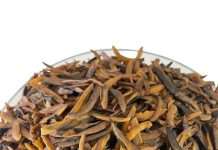Following the spate of heart failures around the world, health experts have advised on the need for people to substitute butter and other saturated fat for margarine and vegetable oil, which are known to reduce the risk of heart disease as much as statins.
Although several studies have found little or no link between the consumption of saturated fat and cardiovascular diseases, but a recent release by the American Heart Association, issued to cardiologists around the world, said consuming the polyunsaturated fat in ‘healthy’ spreads and oils could cut the risk of cardiovascular disease by 30 percent .
The statement, written by experts at Harvard School of Public Health and reported by DailyMailOnline aimed at setting the record straight – concluding the evidence ‘overwhelmingly’ backs the theory that cutting saturated fat is better for the heart.
It recalled that nutritionists have been on the advocacy to cut down on full-fat milk and other meat and dairy high in saturated fat for decades.
To arrive at their conclusion, the scientists analysed all available evidence on the subject and found saturated fat – such as that found in butter, whole milk, cream, palm oil, coconut oil, beef and pork – was linked to an increased risk of heart disease.
Replacing this with polyunsaturated fat – found in spreads and vegetable oils – or monounsaturated oils found in olive oil, avocados and nuts – cuts the risk of heart problems.
According to the Lead author Professor Frank Sacks, of Harvard School of Public Health: ‘We want to set the record straight on why well-conducted scientific research overwhelmingly supports limiting saturated fat in the diet to prevent diseases of the heart and blood vessels.
Saturated fat increases LDL – bad cholesterol – which is a major cause of artery-clogging plaque and cardiovascular disease.”
He added: “A healthy diet doesn’t just limit certain unfavourable nutrients, such as saturated fats, that can increase the risk of heart attacks, strokes and other blood vessel diseases. It should also focus on healthy foods rich in nutrients that can help reduce disease risk, like poly- and mono-unsaturated vegetable oils, nuts, fruits, vegetables, whole grains, fish and others.”












